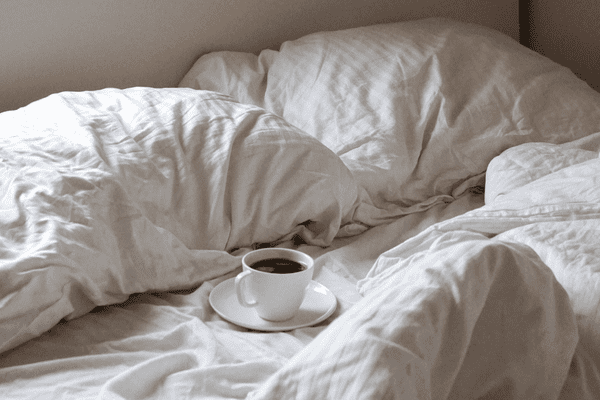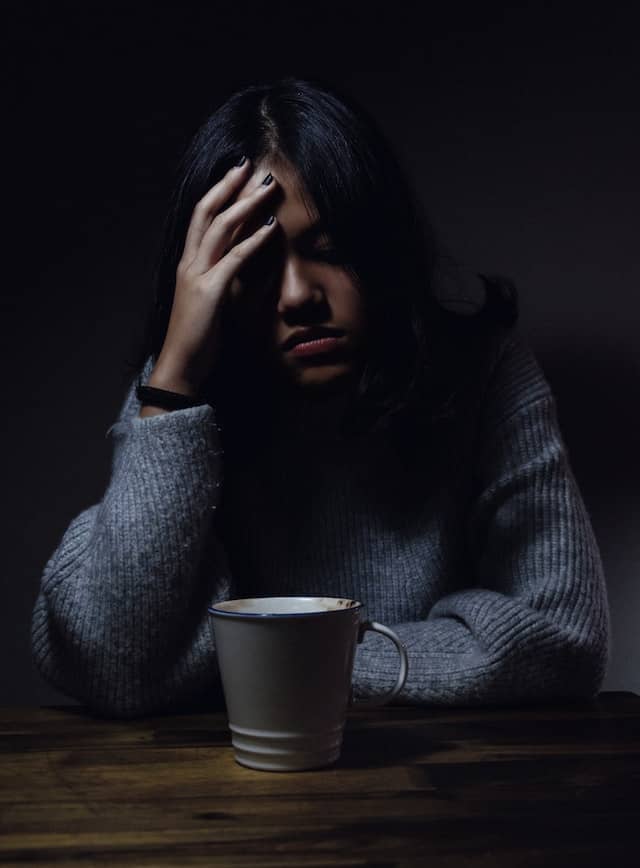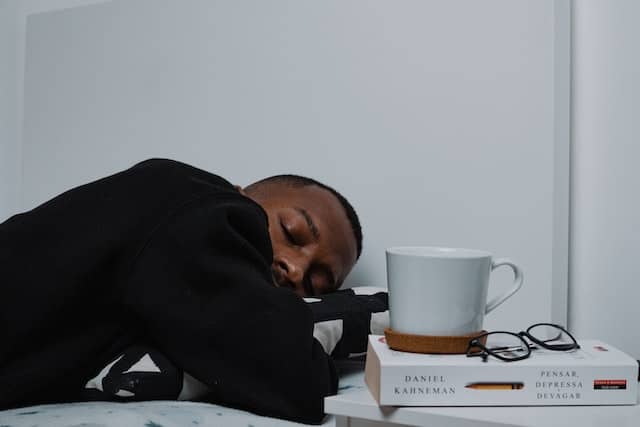Last updated on September 4th, 2023 by Jules Winnfield

Have you ever had a cup of coffee and felt tired afterwards instead of energetic? The question why does coffee make me sleepy is a common one. So I, your friendly neighborhood pharmacist, investigated and pulled the latest data to uncover the answer.
You may be surprised by what I uncovered.
What is caffeine?
Caffeine is a powerful psychoactive stimulant, commonly found in coffee. Among its most loved properties include increased focus, attention, cognitive ability (how this happens is debatable), memory, productivity, energy, and physical performance. It also has antioxidant effects that improve overall health. It also increase your metabolism.
Its neuro effects are so prominent that there’s even data showing long term caffeine use can reduce the risk of dementia, Alzheimer’s and Parkinsons!
Caffeine: The Double Edged Sword

Photo by Anh Nguyen
Most of us consume coffee because waking up in the morning is a drag. This is because we are not getting enough sleep. Coffee does a great job of reducing sleepiness and increasing cognitive function even when you’re chronically sleep deprived so you can get stuff done during the day.
But on the other hand, caffeine isn’t good for your overall sleep health. Caffeine according to several studies and randomized trials has shown to increase sleep latency (the time it takes to fall asleep), decrease total sleep time, and decrease the perceived quality of sleep. That means waking up feeling like you never even slept!
So why does coffee make me sleepy?
1. You utilize and breakdown coffee differently
Caffeine goes through a series of processes and transformations the moment you consume it. But because of all the inter individual variations that can be at play, how you use and break it down can be way different than me, leading to possible sleepiness.
Here is caffeine’s general drug action profile. Note the wide range in numbers.
- Caffeine has a relatively quick absorption from the gut; about 15 minutes to 2 hours
- Caffeine will then pass through your liver, then into your bloodstream. Caffeine ends up pretty much everywhere in your body.
- Caffeine is metabolized or broken down into 3 main components: Paraxanthine, theophylline, and theobromine, which are all similar in structure and effects to caffeine
- Caffeine’s effects will last about 2-12 hours (the halflife), but varies in different people
- Caffeine doesn’t get excreted in the urine as much since most of it is reabsorbed
2. Caffeine blocks adenosine
Adenosine is a natural occurring substance in the body that calms your mind. The blockage of adenosine receptors in certain parts of the brain is the source of caffeine’s stimulatory effects. Caffeine also blocks adenosine receptors in the heart. This is why you may feel your heart rate and blood pressure go up and also feel anxious and jittery.
But once the caffeine wears off, there could be a large amount of adenosine waiting on the sidelines to hit the receptors in your brain and induce a sleepy effect.
3. Caffeine is a pain reliever
Caffeine also has a pain relieving effect. Studies have shown caffeine can produce an antinociceptive (anti-pain) effect and relieve headaches by blocking adenosine receptors.
The doses vary, but anti pain pathways can sometimes have a sleepy response too.
4. You’re addicted to coffee

The problem is that it is fairly easy to consume too much caffeine and eventually become dependent on it. Caffeine is also in energy drinks, soda, and tea which people are consuming more and more in our busy constant grind society.
If you’re a chronic coffee drinker and you stop drinking coffee, then withdrawal effects can occur. Symptoms like increased headache, sleepiness, decreased alertness and activeness are common. This can start 12-24 hours after your last cup and go on for up to 5 days!
The insidious part is this sleepiness reinforces the desire to drink more coffee which leads to the same continuous cycle of dependence.
5. Too much sugar or cream in your coffee
If you pour alot of sugar, syrups, cream, milk into your daily cup, those things are likely the source of your sleepiness. The excessive sugar in your blood will cause your body to produce more insulin to use it and leave you feeling crashed afterwards. We see our children do it everyday.
Because cream milk and sugars can also cause weight gain, it’s probably a good idea to consider healthier options.
Final Verdict
While the caffeine in coffee is overall a beneficial compound with positive effects on our focus, attention, memory and energy, it can be bad too if abused. Most people will get stimulatory effects. But if you feel sleepy instead there’s a number of things that can cause it.
- Genetic differences in people can cause a contrarian response to coffee consumption
- Taking it with other foods or drugs
- Drinking alcohol for example around the same time can cause a sleepy effect even in the presence of coffee.
- Withdrawal symptoms
- Addition of milk, sugar, and syrups.
Narrow the causes down and test to find out which one is the culprit. Hope this helps!
Coffee Has Never Read This Good!
Sign up for a FREE newsletter to the best home brewing tips and guides
Thank you for subscribing to The Cup Coffee House Crew! There's a surprise in your Inbox 🙂
Something went wrong.
- About the Author
- Latest Posts

“Jules” is a pharmacist by day and investor, writer, and health nut by night. When he’s not sipping on some coffee laced with MCT oil during an 18 hour fast, he is writing about how to get your coffee grind on or playing Monopoly with his 2 boys and wife. Ahh…life is good!
